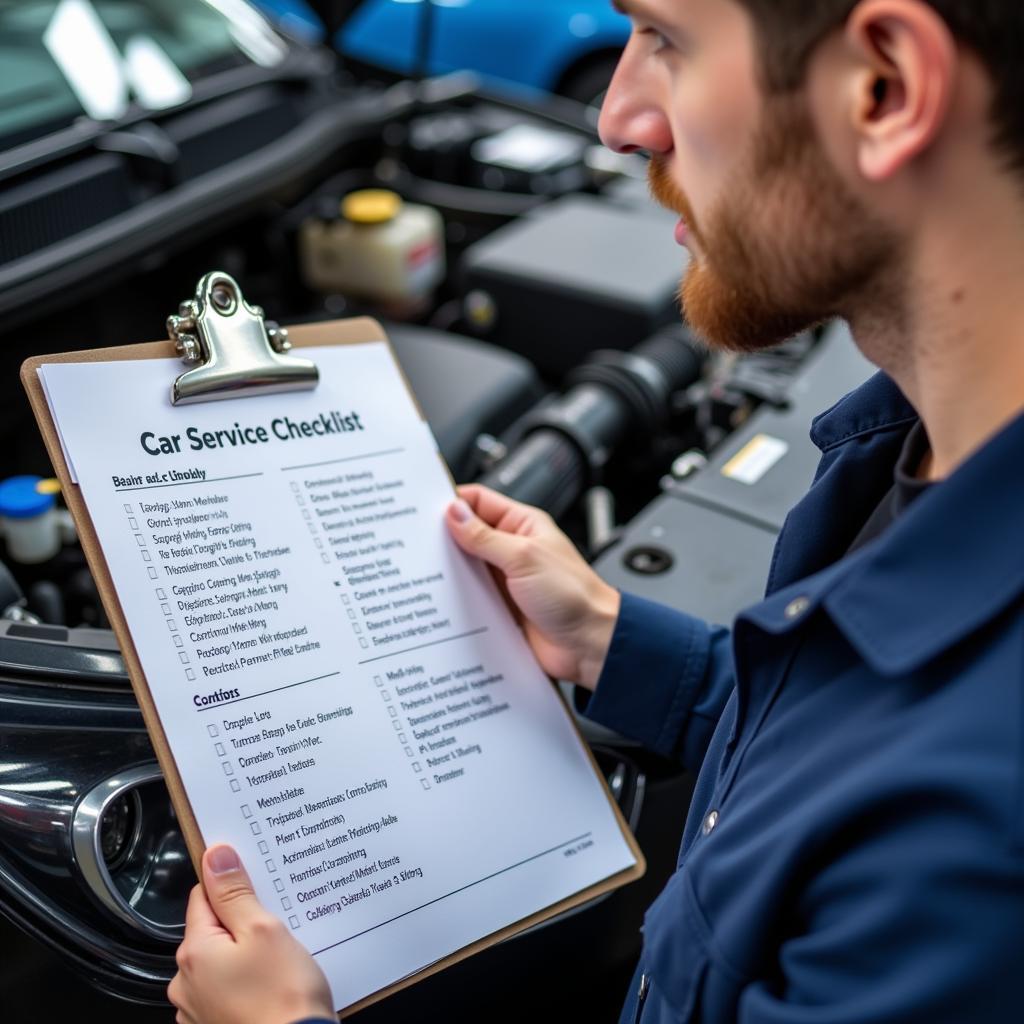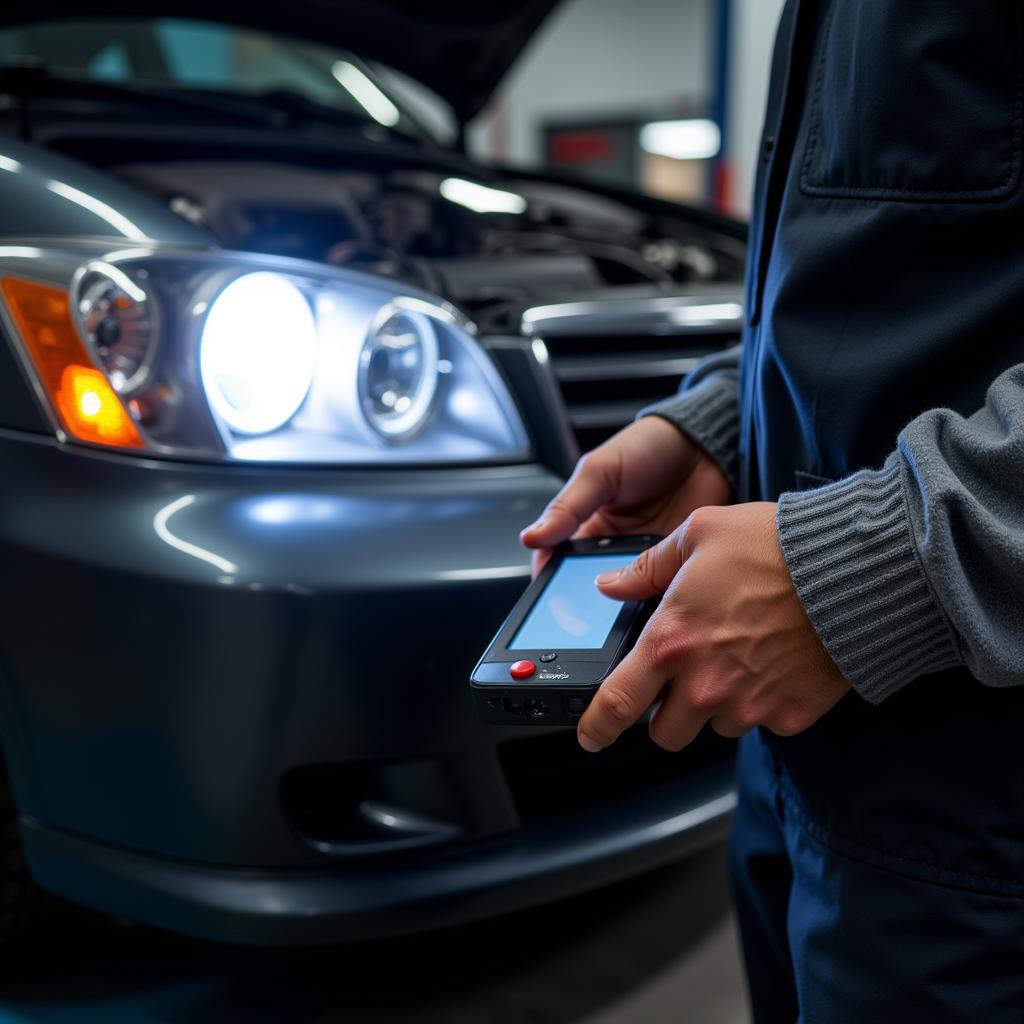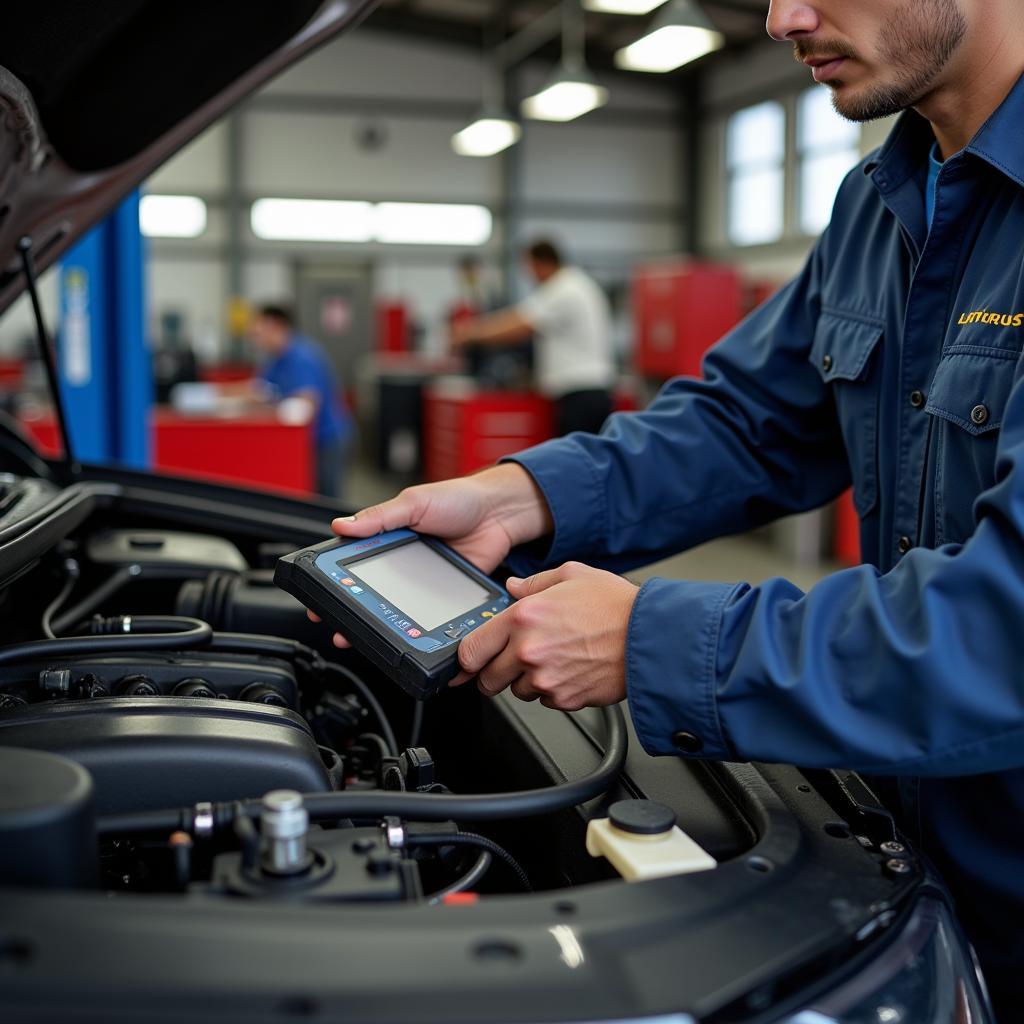What Does a Basic Car Service Consist of?
Owning a car goes beyond just filling the tank and hitting the gas. To ensure your vehicle runs smoothly and safely for years to come, regular car servicing is non-negotiable. But What Does A Basic Car Service Consist Of? This comprehensive guide will break down the essential checks and replacements included in a standard car service, empowering you to make informed decisions about your vehicle’s maintenance.
 Basic Car Service Checklist
Basic Car Service Checklist
Understanding the Importance of a Basic Car Service
Before we delve into the specifics, let’s understand why a basic car service is crucial. Regular servicing acts as preventative maintenance, identifying minor issues before they escalate into major problems. This not only saves you from hefty repair costs down the line but also ensures optimal vehicle performance and fuel efficiency. Additionally, a well-maintained car holds its value better, which is a significant benefit if you plan on selling it in the future.
What to Expect in a Basic Car Service
A basic car service, also known as an interim service, is typically recommended every 6,000 miles or 6 months, whichever comes first. However, referring to your owner’s manual for manufacturer-specific recommendations is always advisable. While the exact components checked might vary slightly depending on the car model and service center, here’s a general overview of what a basic car service typically includes:
1. Engine Oil and Filter Change
This is arguably the most crucial aspect of a basic car service. The engine oil acts as a lubricant for the moving parts within the engine, reducing friction and preventing wear and tear. Over time, the oil degrades and becomes less effective, necessitating a replacement. The oil filter works in tandem with the oil, trapping dirt and debris to prevent them from circulating back into the engine.
Expert Insight:
“Regular oil changes are non-negotiable for a healthy engine. Skipping them can lead to decreased fuel efficiency, engine overheating, and in worst-case scenarios, complete engine failure.” – John Miller, Certified Automotive Technician
2. Fluid Level Checks and Top-Ups
Various fluids are essential for the smooth functioning of different car systems. A basic car service will involve checking the levels of these fluids and topping them up if necessary. These fluids typically include:
- Coolant: Prevents the engine from overheating.
- Brake Fluid: Ensures proper functioning of the braking system.
- Power Steering Fluid: Assists in smooth steering wheel operation.
- Windshield Washer Fluid: Cleans the windshield for optimal visibility.
3. Tire Inspection and Pressure Check
Tires are the only point of contact between your car and the road, making their condition paramount for safety and handling. During a basic car service, the mechanic will inspect your tires for:
- Tread Depth: Ensures sufficient grip on the road, especially in wet conditions.
- Tire Pressure: Correct tire pressure ensures optimal performance and fuel efficiency.
- General Condition: Checks for any cuts, bulges, or uneven wear patterns that might indicate a problem.
4. Visual Brake Inspection
Your car’s braking system is critical for your safety. A visual brake inspection during a basic car service will check the condition of:
- Brake Pads: Determines the thickness of the pads and whether they need replacement.
- Brake Discs/Rotors: Checks for any signs of wear and tear or damage.
- Brake Lines: Inspects for any leaks or damage to the brake lines.
5. Lights Check
All exterior lights, including headlights, taillights, brake lights, and turn signals, are checked to ensure they are functioning correctly. This is essential for visibility and to comply with road safety regulations.
 Checking car lights for functionality
Checking car lights for functionality
6. Battery Test
The battery provides the electrical power needed to start your car and run various electrical components. A battery test will check:
- Voltage: Determines the battery’s charge level.
- Starting Power: Assesses the battery’s ability to start the engine.
- Overall Health: Identifies any potential issues with the battery.
Benefits of Regular Car Servicing
Regular car servicing offers numerous benefits, including:
- Increased Safety: Ensures your car is in optimal condition, reducing the risk of breakdowns and accidents.
- Improved Performance: Maintains optimal engine performance and fuel efficiency.
- Extended Vehicle Lifespan: Prevents premature wear and tear, extending the life of your car.
- Higher Resale Value: A well-maintained car with a documented service history commands a higher resale value.
- Peace of Mind: Knowing your car is in safe and reliable condition provides invaluable peace of mind.
Conclusion
Understanding what a basic car service consists of empowers you to make informed decisions about your vehicle’s maintenance. By adhering to the recommended service intervals and addressing any issues promptly, you can ensure your car remains safe, reliable, and in peak condition for years to come. Remember, regular car servicing is an investment, not an expense, and the benefits far outweigh the costs.
For more insights on car maintenance costs, check out our article on how much car service cost.
FAQs
1. How often should I get a basic car service?
It’s generally recommended to get a basic car service every 6,000 miles or 6 months, whichever comes first. However, always refer to your car’s owner’s manual for manufacturer-specific recommendations.
2. How long does a basic car service take?
A basic car service typically takes around 1-2 hours, depending on the car model and the specific checks included.
3. Can I service my car myself?
While some car maintenance tasks can be done at home with basic tools and knowledge, a basic car service is best left to qualified mechanics who have the expertise and equipment to perform the checks thoroughly.
4. Do I need to go to a dealership for a basic car service?
No, you don’t necessarily need to go to a dealership for a basic car service. You can choose a reputable independent garage or service center that specializes in your car make and model.
5. What if I don’t know the service history of my used car?
If you’re unsure about the service history of your used car, it’s a good idea to get a comprehensive inspection and service done to establish a baseline and ensure everything is in order. Learn more about checking your car’s service history in our article: how can i check my cars service history.
6. What happens if I skip a car service?
Skipping car services can lead to various problems, including decreased performance, reduced fuel efficiency, premature wear and tear, and an increased risk of breakdowns. It can also void your car’s warranty in some cases.
7. Are car service advisors incentivized to sell me additional services?
To understand how car service advisors are compensated, take a look at our article: do car service advisors make commission.
Need Help with Your Car Service?
Contact us today via WhatsApp: +1(641)206-8880 or Email: [email protected]. Our team of dedicated automotive experts is available 24/7 to answer your questions, provide personalized advice, and help you schedule your next car service.

